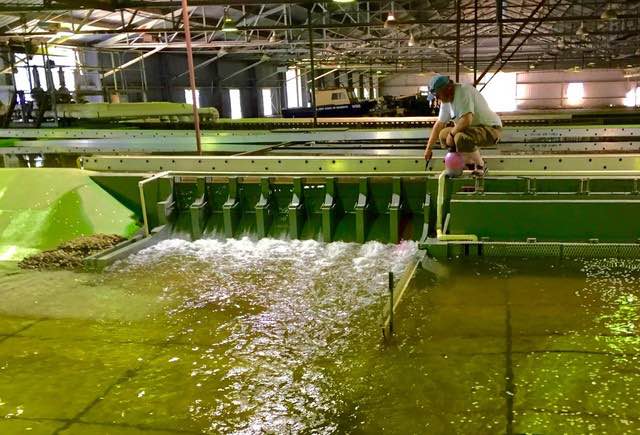forum
library
tutorial
contact

WA Rep. Newhouse Fights to Withhold
Congressional Support for Breaching 4 Snake Dams
by Annette Cary
Tri-City Herald, January 17, 2024
|
the film forum library tutorial contact |

|
WA Rep. Newhouse Fights to Withhold
by Annette Cary
|
 Kennewick, WA --
Rep. Dan Newhouse, R-Wash., testified he will work to keep any language that would promote breaching the four lower Snake River dams in Eastern Washington out of a key House water infrastructure bill.
Kennewick, WA --
Rep. Dan Newhouse, R-Wash., testified he will work to keep any language that would promote breaching the four lower Snake River dams in Eastern Washington out of a key House water infrastructure bill.
He spoke to the House Committee on Transportation and Infrastructure at a recent hearing on the Water Resources Development Act of 2024.
He opposes any language that would allow not only the physical breaching of the dam, but what he called operational breaching of the four dams in Washington and Idaho.
He also would oppose any aid to federal agencies implementing the Columbia Basin Restoration Initiative, an agreement reached in federal court between the United States and six other governments -- the states of Washington and Oregon and four tribes.
The initiative will spend more than $1 billion over a decade to prepare for breaching the four hydroelectric dams on the Snake River, but stops short of physically breaching or tearing them down to promote endangered fish populations.
It's been called a "roadmap" to breaching the Ice Harbor, Lower Monumental, Little Goose and Lower Granite dams along the Snake River between the Tri-Cities in Washington and Lewiston, Idaho.
However, Newhouse said the commitments of the Biden administration in the agreement will "operationally and functionally breach the lower Snake River dams, spur exorbitant (electric) ratepayer increases and cause harm to the salmon population."
The agreement spells out how much water must be spilled over dams to benefit juvenile salmon rather than being used to produce electricity. But supporters of the dams have argued that spilling too much water can harm fish.
If gases in the water -- including oxygen, carbon dioxide and nitrogen -- are increased too much through spilling large amounts of water over the dam, they can be fatal to young fish.
The Columbia River System Operations, including the lower Snake River dams provide benefits to millions across the Pacific Northwest, including flood control, irrigation, transportation of agricultural and other good and reliable and consistent renewable energy, Newhouse said.
"Recreationists, farmers, river-dependent ports and communities, transportation stakeholders, and electricity customers would be irreparably damaged in the lower Snake River dams are breached, he said in his testimony to the Congressional committee.
Supporters of breaching the dams see it as a way to rebuild dwindling salmon populations and by extension save the endangered southern resident orca whale population that feeds primarily on chinook salmon along the Washington coast.
The agreement reached in federal court relied on "Rebuilding Interior Columbia Basin Salmon and Steelhead," a 2022 report by the National Oceanic and Atmospheric administration. The report found that science supports dam removal, among other actions, and "overwhelmingly supports acting and acting now."
However, a 2021 peer-reviewed NOAA study published in "Communications Biology" found that the dominant driver toward extinction in Chinook salmon was rising ocean temperatures, supporters of keeping the dam have countered.
Related Pages:
Letter to NOAA Shows How Far Snake Dam Opponents Will Go to Control the Narrative by Editorial Board, Tri-City Herald, 6/22/23
learn more on topics covered in the film
see the video
read the script
learn the songs
discussion forum
